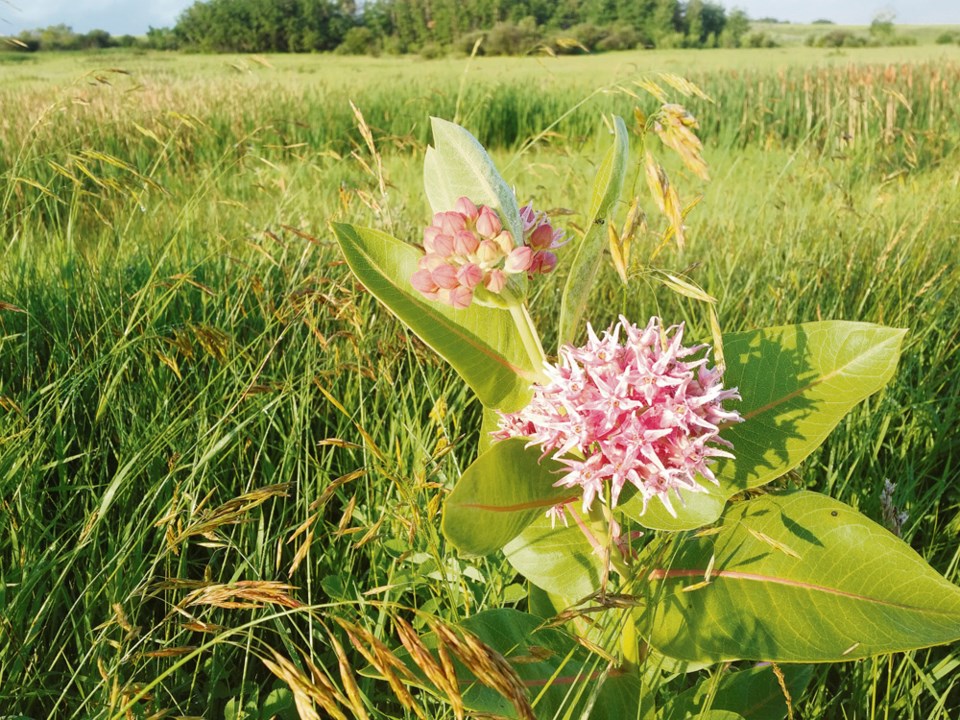Monarch butterflies lay their eggs on just one type of plant and that’s milkweed, with its large, fragrant, exotic looking flower head.
Milkweed can be found throughout southern Manitoba, usually in ditches and on the edges of fields. If you know what you are looking for, the plant can be spotted along the roadside in the RM of Wallace-Woodworth.
Milkweeds are the sole food for the beautiful large butterfly.
Ditches are mowed every year, and perhaps even worse for these plants that are home to monarch eggs and caterpillars, fields are sprayed with chemicals.
There are a number of species that use milkweed nectar. Unfortunately, milkweed often has a bad reputation, however, awareness is rising around the importance of milkweed for pollinators such as bees and butterflies.
Pollinators, including the monarch, are responsible for almost all of the fruits and vegetables we eat.
In the case of the monarch, this is one of the most unusual and beautiful large butterflies, whose numbers saw an 80 per cent drop in recent years due to loss of habitat in Mexico where it overwinters. In Canada, the monarch was recommended for listing as endangered under the Species at Risk Act in December 2016.
Milkweed sap contains toxins called cardiac glycosides which are toxic to animals if consumed in large quantities. Most animals won’t eat it because of the taste.
Safety regarding milkweed:
- Use gardening gloves to handle the plant, and wash your hands after handling it.
- Don’t include it in the hay production and make sure there is plenty of other food for grazers.
- Take steps to prevent accidental ingestion - instruct children that the plant is poisonous.




